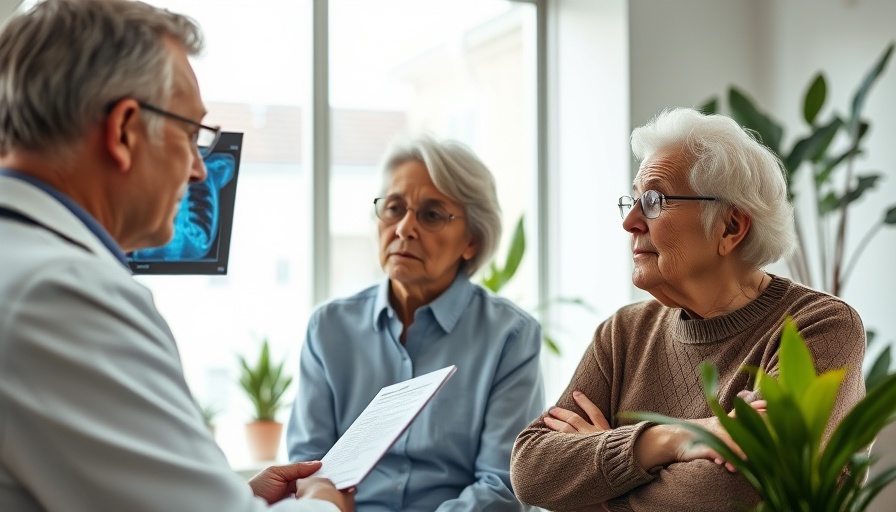
Alarming New Trends: Lung Cancer in Non-Smokers
As lung cancer rates climb, a troubling trend is emerging: many patients diagnosed with the disease have never smoked a cigarette in their lives. According to recent medical reports, this phenomenon is becoming more frequent, raising serious concerns among healthcare professionals. Experts stress that factors beyond smoking exposure may contribute to lung cancer risk, challenging traditional views on the disease.
Understanding the Impact of Secondhand Smoke and Environmental Factors
While smoking is a well-known cause of lung cancer, doctors point out that secondhand smoke and environmental pollutants can also significantly increase a person's risk. For those who have grown up or worked in environments with high levels of pollution, the exposure to harmful chemicals can be detrimental. For instance, working in industries with exposure to asbestos, radon, or other toxic substances can pose serious threats to lung health. Thus, even individuals who never smoked can find themselves in danger.
The Role of Genetics in Lung Cancer
Genetics can also play a crucial role in determining one's susceptibility to lung cancer. Studies suggest that a family history of lung cancer could increase an individual's risk, regardless of their smoking history. Genetic predispositions combined with environmental and lifestyle factors may create a perfect storm for lung cancer development, underscoring the importance of awareness and screening among those without any traditional risk factors.
Raising Awareness: A Call to Action for Health Screenings
As we continue to uncover the complexities of lung cancer causes, health experts emphasize the need for proactive health screenings. Regular check-ups and lung health assessments are essential, particularly for individuals over 55, as early detection can be pivotal in improving outcomes. Healthcare providers are urged to ask patients about their environmental exposures and family histories, ensuring a more comprehensive understanding of their lung health.
Support Systems and Treatment Options for Lung Cancer Patients
For those diagnosed with lung cancer, support systems are vital. Resources such as support groups, counseling for mental health, and educational materials about treatment options can greatly aid in dealing with the diagnosis. Recently, advancements in targeted therapies and immunotherapies have provided new hope for patients with various genetic profiles, challenging the notion that lung cancer is a death sentence.
Emotional Resonance: Striking Personal Stories
Stories shared by lung cancer survivors in communities across Louisiana highlight the necessity for enhanced support and understanding. One survivor, Mary, who found out about her lung cancer at a routine check-up, emphasizes the importance of listening to one's body and advocating for oneself in medical settings. 'Never smoked a day in my life,' she shares. 'It was shocking, but I’m grateful I caught it early.'
Conclusion: Embracing a New Perspective on Lung Health
Ultimately, shifting our perceptions about lung cancer to consider all potential risk factors is essential for prevention and awareness. Understanding that lung cancer affects non-smokers can help dismantle stigma and promote better health practices within communities. If you’re over 55 or have concerns about lung health, consider scheduling a screening—your lungs deserve attention too!
For those looking to make informed lifestyle changes, remember that every small step counts. Seek out local health workshops, support systems, and educational materials that focus on lung health. Awareness is critical—for you and your loved ones.
 Add Row
Add Row  Add
Add 



Write A Comment